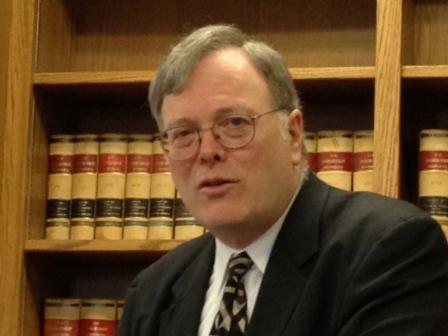Professor Durham Delivers First Religious Freedom Discussion Series Lecture

Professor W. Cole Durham, Jr., director of the International Center for Law and Religion Studies at Brigham Young University, delivered the first lecture in the Religious Freedom Discussion Series sponsored by the Center with the Community Service Outreach Committee of the J. Reuben Clark Law Society (JRCLS). Professor Durham’s address, “Current Developments in International Religious Freedom,” was delivered on 3 March 2011 and webcast live from the J. Reuben Clark Law School in Provo, Utah.
Religion is a permanent feature of modern society, observed Professor Durham in his March 3 address. Religion is not “withering away” as has been predicted by the “secularization thesis.” The trend in fact is toward greater pluralization everywhere, while at the same time traditional religions still play very significant roles in their countries. Most countries worldwide affirm the value of religion in society and support international human rights standards that protect religious freedom. In fact, religious freedom is a right recognized in the overwhelming majority of the world’s constitutions, including virtually every European constitution and the constitutions of every independent country in Latin America. New empirical research underscores the importance of religious freedom in society and its underpinning of a host of recognized social goods. (See, for example, Brian Grim and Roger Finke, The Price of Freedom Denied.)
At the same time, however, a wide gap exists between theory and practice. A Pew Fourm study released in December 2009 reported that 70% of the people of the world live in areas where restrictions on religion are “high or very high,” and a recent study (Grim and Finke) of 143 countries comprising 99% of the world’s population revealed that religious persecution occurs in 86% of these countries, with governmental regulation and reinforcement of social hostilities contributing to societal tensions and religious violence.
Building upon this foundation, Professor Durham outlined challenges and possibiilities facing those committed to sustaining the role of religion in society and to securing the benefits of freedom of religion or belief for all people. His presentation touched upon key issues of conscientious objection, defamation of religions, religion and the public square, and automony, land use, registration, and right to travel issues specific to religious organizations. Quoting LDS Apostle Dallin H. Oaks, Professor Durham asserted, “There is a battle over the meaning of [religious] freedom,” and it is imperative that the rising generation “understand the issues and make the efforts to prevail.”